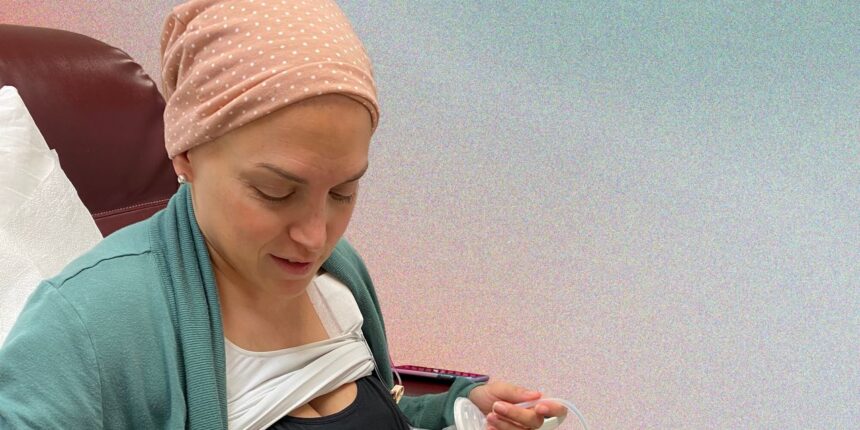Being pregnant or postpartum while undergoing treatment also makes it tough to safeguard your future fertility (which can be damaged by chemo). While fertility-preserving treatments like egg freezing are often recommended before starting chemo, these aren’t doable mid-pregnancy nor within the first month postpartum or while breastfeeding, Sasha Hakman, MD, a board-certified ob-gyn and reproductive endocrinologist at HRC Fertility, in Beverly Hills, tells SELF. Hence, another conundrum: Continuing a pregnancy during breast cancer treatment could mean dampening your ability to have more kids down the line.
Despite these considerations, legal restrictions in many states still pose obstacles to choosing abortion. (It’s the reason all major oncology groups in the US have denounced the Supreme Court’s Dobbs decision that paved the way for such bans.)
4 ways to take charge of your breast health before, during, and after pregnancy
1. Learn your personal risk of breast cancer before getting pregnant.
With breast cancer dipping into younger demos, doctors now recommend taking a breast cancer risk assessment as early as age 25, well before the standard mammogram starting age of 40. Why? If your lifetime likelihood of developing the disease is high (a result of 20% or greater), you may qualify for sooner, more frequent, or more sensitive types of screening, like breast MRI, Dr. Comen points out. Having this kind of extra surveillance pre-pregnancy can improve your chances of catching any suspicious changes early, Dr. Calfa says.
2. Embrace positive lifestyle shifts.
While plenty about getting cancer may be out of your control, research suggests 40% of cases are fueled (at least in part) by the everyday behaviors that are within your power to change; and lifestyle is a particular culprit behind rising rates in young people. Cutting down on alcohol consumption, avoiding any sort of tobacco product, filling up on mostly plants (and few processed foods), and getting in regular exercise are the key habits Dr. Comen calls out for lowering your risk of any cancer before, during, and after pregnancy.
3. Flag odd breast changes during and after pregnancy to your doctor.
Breast changes are par for the course in pregnancy and postpartum: They could swell, grow, and get tender, and your nipples may appear darker. And post-childbirth, whether you breastfeed or not, it’s common to have soreness and even to develop a lump on one or both boobs caused by a blocked milk duct, mastitis, or benign cyst, Dr. Teplinsky notes. But at the same time, these shifts and other off-seeming changes—a thickening of the skin, an inverted nipple, redness, dimpling—could also be a sign of cancer and warrant a workup, so it’s important to surface anything unusual to your doctor and voice your concern, she says.
Read the full article here



